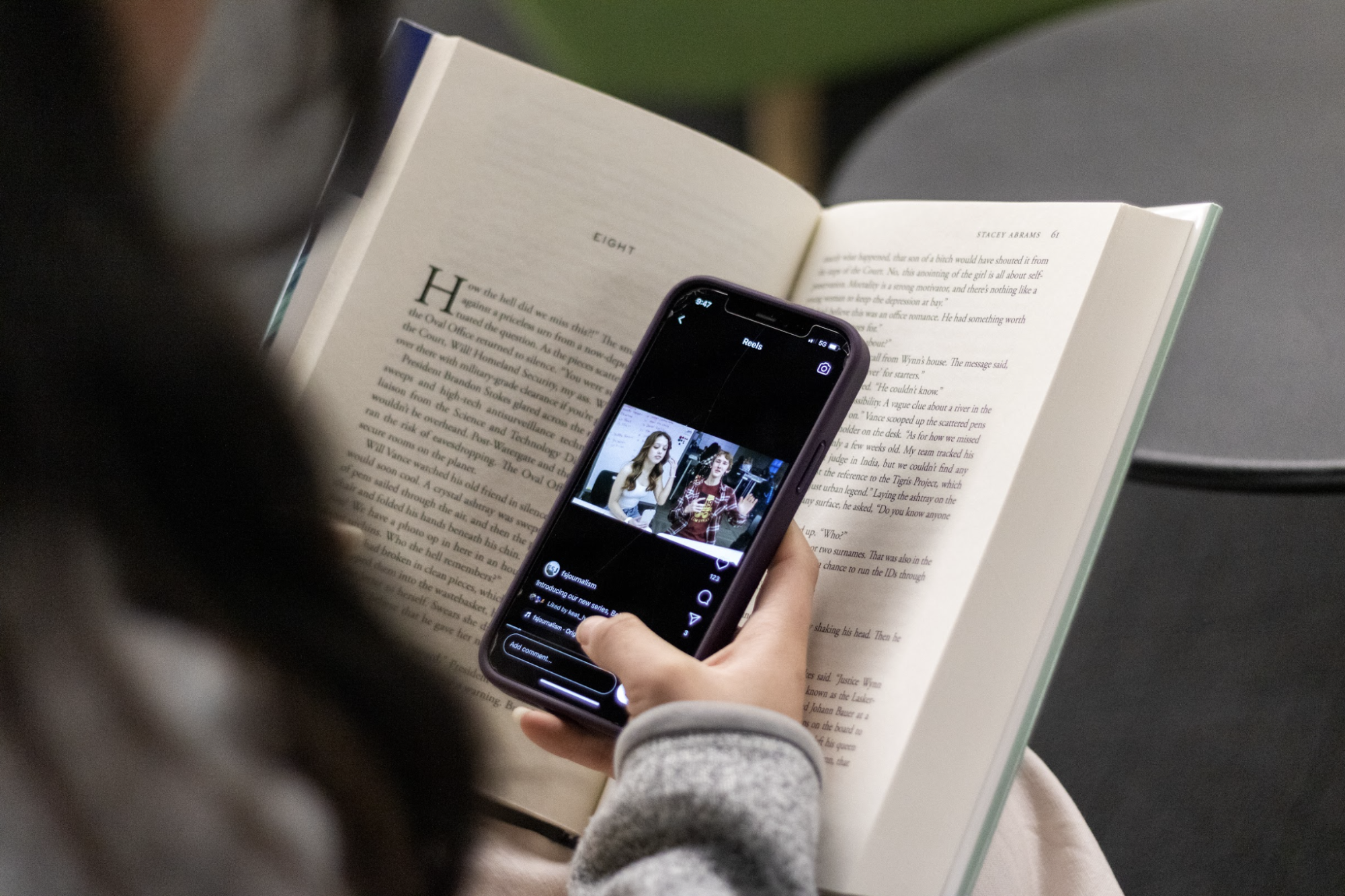There is an increasing concern in The Student Library Advisory Board about declines in reading among teenagers. According to a study done by the American Psychological Association, less than 20% of high schoolers read for enjoyment, while more than 80% use social media daily.
Senior Liza Engelbecht, a SLAB member believes that the rise of smart devices may contribute to the adolescent reading slump.
“People have been reading less because we’re being immersed in other things like TV and phones rather than books,” Engelbrecht said.
Offering a similar perspective, SLAB member junior Kaitlynn Sedich hypothesizes that the loss of interest in reading may have to do with the availability of technology.
“While some technology does foster reading, it’s really hard when you have your phone right there and you can mindlessly scroll and not have to focus your attention when sitting next to you is a book that you’ve been meaning to read,” Sedich said.
Sedich also believes that many students feel they don’t have time in their schedules to incorporate recreational reading into their day. With homework, extracurricular activities and after-school jobs, many students might find it difficult to prioritize reading.
To support more reading among students, SLAB has implemented several practices in the library to get students more interested in literature. They have encouraged reading by decorating the library, creating displays of book recommendations, and in February, SLAB did blind dates with a book for Valentines Day.
“Our main goal is putting ourselves on platforms that students care more about. We now have a social media team and we’re following some of the micro trends, coming up with our own, and posting book reviews,” Sedich said.
Librarian Marisa Hegeman has also tried to support student reading by trying to stay in touch with students and what interests them.
“I try to pay attention to what’s popular on social media and what kids want to read and stock more of those types of books: what they want to read, not necessarily what the adults think they should read,” Hegeman said.
A study conducted by Yale researchers concluded that reading for up to three and a half hours per week can increase life expectancy by two years. Beyond the many health and academic benefits, Hegeman believes that reading often has positive effects on character.
“I really view books as windows and mirrors and It creates more empathetic humans,” Hegeman said. “To read about a person or experiences that you might not have is very powerful so they get to be a window for you into someone else’s life. It’s very hard to be a teenager and it’s hard to be a human so finding mirrors to see people going through similar struggles can be really important so you don’t feel quite so isolated or sad.”























